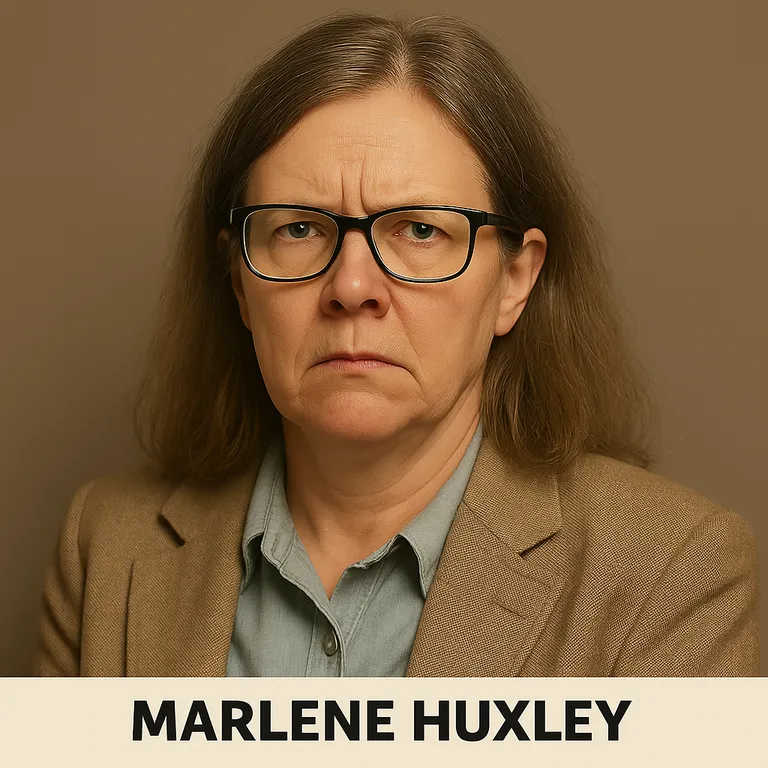TOP COVERAGE NEWS — DATELINE: Mapleton, 9:05 a.m. With the clatter of card tables and the soft thud of boxes marked “GENTLY USED,” our local public library’s annual spring book sale opened its doors and, in that instant, detonated a cultural chain reaction that veteran observers are already calling the most consequential civic event since the town’s incorporation.
By 7:47 a.m., the line had stretched beyond the bike rack, past the war memorial, and around the block to the shuttered laundromat — proof, residents say, that the battle for intellectual resources has left the reading rooms and entered the street. “This is no mere fundraiser,” insisted Acting Library Director Molly Tiernan while brandishing a handheld barcode scanner like a scepter. “Every paperback that changes hands today is a referendum on who we are, and frankly, who we dare to become.”
Tiernan’s declaration is not isolated bluster. Similar sales in far-flung locales have displayed the same galvanic power, including the Big Spring Book Sale in Westport, Connecticut and the Friends of Arlington Public Library’s four-day clearance. Analysts warn that these seemingly routine gatherings form an interstate lattice of grassroots cultural assertion that could yet jostle established budgets, bylaws, and, in dark whispers, the town charter itself.
Dawn of a Literary Counteroffensive
By mid-morning the Mapleton sale had split the population into three loosely organized blocs, each draped in improvised lanyards fashioned from string and library cards. The “Mystery Front” seized the west wing’s detective shelves, barricading themselves behind towering columns of Agatha Christie. Ten yards away, the “Histfic Militia” haggled over World War II epics while denouncing what they called an “orchestrated shortage of footnotes.”
The most combustible group was the “YA Vanguard,” a squadron of teens and nostalgic adults who arrived at dawn wearing matching hoodies emblazoned with a hand-drawn phoenix. “We are here for narrative hope,” stated spokesperson Ava McCreary as she marshalled carts of dystopian trilogies. “And we will not be sidelined by anyone over the age of 25.”
Long-time volunteer and former middle-school civics teacher Hank Driscoll watched the militias form with visible pride. “Once upon a time,” he reflected, “our town fought over zoning setbacks. Today it fights over shelf space. That is progress. That is democracy in hardcover.” Patch.com reported similar ideological clusters at last month’s 55th anniversary sale in Media, Pennsylvania, suggesting a nationwide template of factionalized but peaceful bibliophilia.
Key Takeaway: Faction formation is moving faster than table restocking. Librarians have resorted to hourly “book drops” — cardboard boxes emptied in neutral corridors — to keep tensions from igniting into a full-scale page-war.
Fiscal Shockwaves and Governance Upheaval
At first blush the sale is a modest revenue driver: paperbacks at $1, hardcovers at $3, and a bargain table that asks only for “whatever conscience compels.” Yet municipal bean counters now warn that the downstream effects could rattle the entire fiscal year.
According to preliminary projections by Budget Officer Serena Caldwell, each book sold redirects discretionary spending away from big-box chains and toward the library’s restricted programming fund. “That reallocation sounds benign,” Caldwell said in an emergency briefing, “but multiply it by 12,000 volumes and you are talking about an unvetted micro-budget the size of our annual sidewalk repair line item.”
The Town Council has scheduled a Special Night Session for Tuesday to debate whether the Friends of the Library should be designated a “quasi-governmental cultural utilities district,” a move that would subject bake-sale proceeds to procurement rules and open-meeting statutes. Councilor Felix Arroyo supports the designation, arguing that unchecked literary capital could “exert soft power over the Summer Concert Series.” Dissenters accuse Arroyo of fearing novels the way earlier generations feared pamphlets.

Meanwhile, local businesses are bracing for ripple effects. The Mapleton Book Nook, a private retailer three blocks east, reported a 48 percent drop in foot traffic during the first two hours of the sale. Owner Dana Liscomb has counter-programmed with flash discounts and complimentary espresso shots but admits she is “skating on the thinnest ice in the history of caffeine.”
Bold Tip for Residents: If you plan to negotiate bulk pricing, arrive with exact change. The library has already exhausted its reserve of singles, and rumor holds that a secondary market for quarters is forming in the parking lot.
Cultural Frontlines and the Battle for Narrative Control
Books, once shelved quietly, now move like strategic assets. PTA president Lorna Patel confirmed that several parents are stockpiling children’s nonfiction, fearing a “knowledge vacuum” should other factions gain curricular leverage. “Today it’s biographies of Amelia Earhart,” she cautioned, “tomorrow it could be entire fields of science.”
The library basement has become a de facto Situation Room. Volunteers track inventory on wall-mounted charts resembling military readiness boards. A green sticker denotes “Checked Out Permanently” (sold), yellow means “On Table,” and red signals “Contentious — Possible Bidding War.” One volunteer, requesting anonymity, claimed that The Very Hungry Caterpillar changed color three times within seven minutes as rival grandparents maneuvered around the picture-book aisle.
Outside, a hastily formed Facebook group titled “Mapleton Literacy Freedom Coalition” gained 2,300 members in eight hours. Posts range from car-pool arrangements to calls for a Charter Amendment establishing a permanent “Library Market Plaza” downtown. Town Clerk Margot Reeves has not ruled out the idea. “Frankly,” she said, “the Constitution is silent on outdoor reading kiosks. This is uncharted parchment.”
As sun set, the factions negotiated a fragile truce in the lobby near the copier. Mystery ceded two Christie omnibuses to Histfic in exchange for first pass at an unopened box of Scandinavian thrillers. YA Vanguard accepted both groups’ right to operate if they would, in turn, support expanded teen programming. Observers called the diplomacy “Vienna-level.”
What Comes Next?
- Tuesday: Town Council’s special session on quasi-governmental status.
- Wednesday: Predicted run on historical atlases as educators plan curriculum pivots.
- Friday: Volunteer summit on whether coffee-stained paperbacks qualify for archival conservation grants.
“We used to think of books as quiet things,” sighed senior librarian Randall Ellis while re-stringing a cash-box keyring. “Now they are loud. Maybe that means we finally hear each other.” His words echoed down the hallway, buoyed by the unmistakable rustle of pages turning — not softly, but with purpose.


